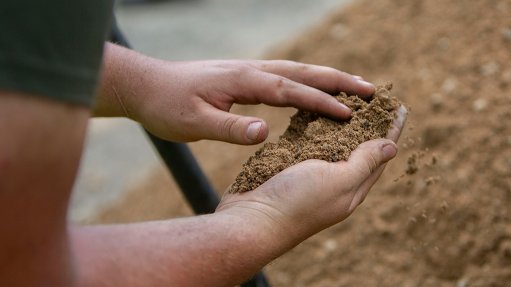Tips to meet your waste management targets
This article has been supplied.
Waste management and waste reporting is an important part of corporate sustainability. Reporting on your waste management performance is a key element that shareholders and investors look at. It is also a JSE integrated reporting standard. To be able to report on your waste management performance, the first step is to draft and implement a waste management strategy with waste reduction and diversion targets. There is no one-size fits all waste management strategy; establishing targets is dependent on the nature of waste streams, volumes, recycling and disposal infrastructure.
Working with corporates, BiobiN South Africa provides on-site composting vessels to process food and organic waste streams and establish waste information capture systems to record the volumes of organic waste that is diverted from landfill and processed into a secondary resource. “Having worked with big businesses in the agricultural and retail sector, we have to work according to a waste management strategy. Along with waste management compliance, there are usually two objectives of a waste management strategy, firstly to reduce the generation of non-recyclable waste, and secondly to create value from waste streams where possible,” says Brian Küsel, director of BiobiN South Africa. “Therefore your waste management strategy should include targets for waste reduction, and targets for waste recycling and repurposing.” BiobiN South Africa discusses this further:
Understanding your waste situation.
The first step in drafting any waste management strategy is to fully understand a company’s waste situation. This is done through a waste situational analysis. This study will determine the different waste streams that you generate and the associated volumes. It will also determine what streams can be recycled, repurposed on-site, or processed into a secondary resource. “As an example, your waste reporting may include volumes of waste landfilled, volumes of plastic recycled, volume of hazardous waste generated, volumes of food waste processed into compost, or volumes of waste used as a secondary product,” says Küsel. “This all depends on the waste situation analysis and identifying the available resources in order to extract value out of your different waste streams.”
Mobilise available resources and technology.
For most big companies, a centralised waste management facility and drop-off site works well to separate waste at source. A typical on-site waste management facility will include a material recovery facility (MRF) to extract recyclables, hazardous waste storage units, landfill waste separation, and organic waste processing plants. “Given the landfill legislation for organic waste and other mechanisms like the Voluntary Food Waste Agreement, we are seeing more companies use on-site composting vessels to process food and organic waste,” says Küsel.
“Whether or not a company has a centralised waste management facility, mobilising waste management resources and technology is crucial for the implementation of your strategy. Composting units, effluent treatment systems and hazardous waste disposal bins should be available throughout the site, or set up in a way that collects all the waste from each of these streams. This may also involve having to train staff on using on-site waste infrastructure,” adds Küsel.
Partner with local accredited service providers
Once all the waste infrastructure has been established and staff trained effectively, it is important to look at your full waste value chain. Who will be taking your solid waste recyclables and repurposed material? Who will benefit the most? “With more organic waste being diverted from landfill and processed as compost there is a big need for local and regional composting businesses to take on this secondary resource. This is a big economic opportunity,” says Küsel.
While your waste management strategy should include provisions for meeting your waste reduction recycling and diversion targets, supporting local waste management service providers, especially recycling companies and composting businesses, should also feature as an integral enterprise development initiative.
Article Enquiry
Email Article
Save Article
Feedback
To advertise email advertising@creamermedia.co.za or click here
Press Office
Announcements
What's On
Subscribe to improve your user experience...
Option 1 (equivalent of R125 a month):
Receive a weekly copy of Creamer Media's Engineering News & Mining Weekly magazine
(print copy for those in South Africa and e-magazine for those outside of South Africa)
Receive daily email newsletters
Access to full search results
Access archive of magazine back copies
Access to Projects in Progress
Access to ONE Research Report of your choice in PDF format
Option 2 (equivalent of R375 a month):
All benefits from Option 1
PLUS
Access to Creamer Media's Research Channel Africa for ALL Research Reports, in PDF format, on various industrial and mining sectors
including Electricity; Water; Energy Transition; Hydrogen; Roads, Rail and Ports; Coal; Gold; Platinum; Battery Metals; etc.
Already a subscriber?
Forgotten your password?
Receive weekly copy of Creamer Media's Engineering News & Mining Weekly magazine (print copy for those in South Africa and e-magazine for those outside of South Africa)
➕
Recieve daily email newsletters
➕
Access to full search results
➕
Access archive of magazine back copies
➕
Access to Projects in Progress
➕
Access to ONE Research Report of your choice in PDF format
RESEARCH CHANNEL AFRICA
R4500 (equivalent of R375 a month)
SUBSCRIBEAll benefits from Option 1
➕
Access to Creamer Media's Research Channel Africa for ALL Research Reports on various industrial and mining sectors, in PDF format, including on:
Electricity
➕
Water
➕
Energy Transition
➕
Hydrogen
➕
Roads, Rail and Ports
➕
Coal
➕
Gold
➕
Platinum
➕
Battery Metals
➕
etc.
Receive all benefits from Option 1 or Option 2 delivered to numerous people at your company
➕
Multiple User names and Passwords for simultaneous log-ins
➕
Intranet integration access to all in your organisation


















